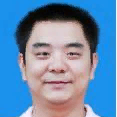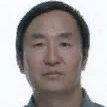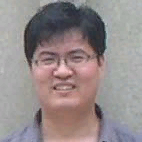International Journal of Image, Graphics and Signal Processing (IJIGSP)
IJIGSP Vol. 3, No. 5, 8 Aug. 2011
Cover page and Table of Contents: PDF (size: 513KB)
Common Carotid Artery Lumen Segmentation in B-mode Ultrasound Transverse View Images
Full Text (PDF, 513KB), PP.15-21
Views: 0 Downloads: 0
Author(s)
Index Terms
Common Carotid Artery (CCA), B-mode Ultrasound (US), Transverse View, Morphology, Lumen Contour Segmentation
Abstract
To evaluate atherosclerosis, common carotid artery (CCA) lumen segmentation requires outlining the intima contour on transverse view of B-mode ultrasound images. The lumen contours are automatically segmented using a morphology method in this paper. The proposed method is based on self-adaptive histogram equalization, non-linear filtering, Canny edge detector and morphology methods. Experiments demonstrated that the merit (FOM) value of lumen segmentation is 0.705. The comparison between proposed method and manual contours on 180 transverse images of the CCA showed a mean absolute error of 0.47±0.13 mm and mean max distance of 2.08±0.63 mm respectively. These results compare favorably with a clinical need for reducing use variability.
Cite This Paper
Xin Yang,Mingyue Ding,Liantang Lou,Ming Yuchi,Wu Qiu,Yue Sun,"Common Carotid Artery Lumen Segmentation in B-mode Ultrasound Transverse View Images", IJIGSP, vol.3, no.5, pp.15-21, 2011. DOI: 10.5815/ijigsp.2011.05.03
Reference
[1]Lopez, A. D. Mathers, C. D. Ezzati, M. Jamison, D. T. and Murray, C. J. “Global and regional burden of disease and risk factors, 2001: Systematic analysis of population health data,” The Lancet 367(9524), 1747–1757 (2006).
[2]N. Santhiyakumari and M. Madheswaran, “Non-invasive Evaluation of Carotid Artery Wall Thickness using Improved Dynamic Programming Technique,” Signal, Image and Video Processing J., vol. 2, pp. 183–193, Jan. 2008.
[3]Peter N.T. Wells, “Current Status and Future Technical Advances of Ultrasonic Imaging,” IEEE Engineering in Med and Bio, vol. 19, Issue 5, pp. 14–20, Sep./Oct. 2000.
[4]Aldons J. Lusis, “Atherosclerosis,” Nature, vol. 407, pp. 233–241, Sep. 2000.
[5]Stephanian E, “Carotid Endarterectomy – a patient’s guide,” http://medinformer.org/page/3948/.
[6]Iris Shai, J. David Spence, and Dan Schwarzfuchs, et al., “Dietary Intervention to Reverse Carotid Atherosclerosis,” Circulation, vol. 121, pp. 1200–1208, Mar. 2010.
[7]C. Haller, Janina Schulz and A. Schmidt-Trucks¨aß, et al., “Sequential Based Analysis of Intima-Media Thickness (IMT) in Common Carotid Artery Studies,” Atherosclerosis, vol. 195, pp. e203–e209, 2007.
[8]Li Guo-kuan, Cheng Xin-yao, Zhou Yuan and Song En-min, “Intima and Adventitia Segmentation of the Common Carotid Artery in Ultrasound Images Based on Active Contour Model,” J. Huazhong Univ. of Sci. & Tech. (Natural Science Edition), vol. 38, No. 6, pp. 75–79, Jun. 2010. (in Chinese).
[9]Matthias W. Lorenz, Carolin Schaefer, Helmuth Steinmetz, and Matthias Sitzer, “Is Carotid Intima Media Thickness Useful for Individual Prediction of Cardiovascular Risk? Ten-year Results from the Carotid Atherosclerosis Progression Study (CAPS),” European Heart Journal, vol. 31, Issue 16, pp. 2041–2048, Jun. 8 2010.
[10]Silvia Delsanto, Filippo Molinari, Pierangela Giustetto, William Liboni, and Sergio Badalamenti, “CULEX-Completely User-independent Layers EXtraction: Ultrasonic Carotid Artery Images Segmentation,” Proceedings of the 2005 IEEE Engineering in Medicine and Biology Society (IEEE-EMBS 2005) 27th Annual Conference, Shanghai, China, pp. 6468–6471, Sep. 1–4, 2005.
[11]Jun Wan, Qiuqi Ruan and Wei Li, “Using Two Methods for Recognition Common Carotid Artery of B-mode Longitudinal Ultrasound Image,” 2010 IEEE 10th International Conference on Signal Processing (ICSP2010 Proceedings), Beijing, China, pp. 1–4, Oct. 24-28 2010.
[12]Jayanthi K. Balasundaram and R. S. D. Wahida Banu, “A Non-invasive Study of Alterations of the Carotid Artery with Age using Ultrasound Images,” Med Bio Eng Comput, vol. 44, pp. 767–772, 2006.
[13]Marie-Hélène Roy Cardinal, Gilles Soulez, Jean-Claude Tardif, Jean Meunier and Guy Cloutier, “Fast-marching Segmentation of Three-Dimensional Intravascular Ultrasound Images: A pre- and post-intervention Study,” Med. Phys., vol. 37, No. 7, pp. 3633–3647, Jul. 2010.
[14]Marie-Hélène Roy Cardinal, Jean Meunier, Gilles Soulez, Roch L. Maurice, Éric Therasse, and Guy Cloutier, “Intravascular Ultrasound Image Segmentation: A Three-Dimensional Fast-Marching Method Based on Gray Level Distributions,” IEEE Trans. on Medical Imaging, vol. 25, No. 5, pp. 590–601, May 2006.
[15]L. Lou, M. Ding, “Principle and Approach of Boundary Extraction Based on Particle Motion in Quantum Mechanics,” Optical Engineering, vol. 46, Issue 2, pp. 027005-1–16, Mar. 01 2007.
[16]K.Q. Sun and N. Sang, “Morphological Enhancement of Vascular Angiogram with Multi-scale Detected by Gabor Filters,” Electronics Letters, vol. 44, Issue 2, pp. 86–87, Jan. 17 2008.
[17]E. Kyriacou, M.S. Pattichis and C.S. Pattichis, et al., “Classification of Atherosclerotic Carotid Plaques using Morphological Analysis on Ultrasound Images,” Appl Intell, vol. 30, pp. 3–23, 2009.
[18]A. Krasinski, B. Chiu, A. Fenster, and G. Parraga, “Magnetic Resonance Imaging and three-dimensional Ultrasound of Carotid Atherosclerosis: Mapping Regional Differences,” J. Magnetic Resonance Imaging, vol. 29, pp. 901–908, 2009.
[19]Joseph Awad, Adam Krasinski, Grace Parraga and Aaron Fenster, “Texture Analysis of Carotid Artery Atherosclerosis from Three-Dimensional Ultrasound Images,” Med. Phys., vol. 37, Issue 4, pp. 1382–1391, Apr. 2010.
[20]Yongjian Yu and Scott T. Acton, "Speckle Reducing Anisotropic Diffusion", IEEE Trans. on Image Processing, vol. 11, Issue. 11, pp. 1260–1270, Nov. 2002.
[21]Mohiy Hadhoud, Mohamed Amin and Walid Dabbour, “Detection of Breast Cancer Tumor Algorithm using Mathematical Morphology and Wavelet Analysis,” the International Congress for Global Science and Technology (ICGST) International Conference on Graphics, Vision and Image Processing (GVIP 2005) and Conference Venue: Cairo International Conference Centre (CICC), 2005.




